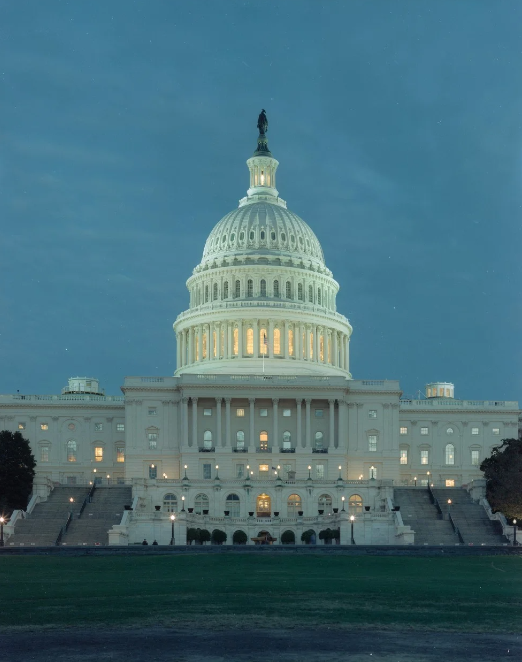There is no doubt recent decisions created by the Supreme Court of the United States are controversial to many citizens. Whether or not you support these decisions, many Americans are concerned about the legitimacy and power of the Court in the American legislature. The founding fathers created the Court to remove the people’s fleeting desires and ideals from the interpretation of the Constitution, though this is not to say the court isn’t filled with bias; currently, the Court is swung into a conservative stroke.
With recent controversial cases — such as the overturning of Roe v. Wade in June 2022, a recent decision on LGBTQ+ rights with 303 Creative LLC v. Elenis in June 2023 and the overturning of affirmative action in Students for Fair Admissions, Inc. v. President and Fellow of Harvard College last June — the Court is seemingly rolling back protections millions of Americans once had.
The appointment of justices in the Supreme Court with conservative backgrounds calls their legitimacy into question. In the University of Massachusetts community, we should expect to see these conservative decisions trickle down into our everyday lives. Luckily, since we are in a blue state, there will be much effort to uphold access to reproductive rights and valuing diversity in higher education. On the national level, though, neither political party should have such a stern grip on the judiciary’s power; a 6-3 conservative majority is a calamity to the nation’s democracy.
Professor Rebecca Hamlin, director of the legal studies department, weighed in on the Court: “Recent decisions by this Court make clear that they are comfortable pushing the law far to the right of public opinion.” The decisions of the Court make everyday life more of an uphill battle in fighting for LGBTQ+ rights, women’s rights and racial diversity. Through its recent decisions, the Court may continue to set harmful precedents that will affect minorities’ rights for years to come.
In the middle of the debate over solutions to the Court’s conservative leanings – whether those solutions are reforms from elected officials or abolishing it altogether — many Americans will become collateral damage due to the Court’s decisions. Allowing ourselves to be run by a one-party state will ruin the very idea of American democracy.
Political science and legal studies professor Paul M. Collins said “These decisions have significant impacts for members of the UMass community since they touch on the diversity of the educational environment, freedom from discrimination and reproductive autonomy.” College campuses are known for their relative diversity and fellowship; the recent decisions and future ones will destroy the very idea of fostering knowledge and learning by creating an appeal towards a conservative state, a state where people cannot be their true selves or pursue their goals.
This conservative Supreme Court creates a culture of fear, regression and hate. Through their various decisions and unknown future decisions, the Court can shape the future of legislature. Conservative decisions can still pass regardless of the Court’s two-party balance, and with such a heavy swing into the conservative end of the spectrum, we must be wary of the Court’s ability to perform its duty of judicial review.
The Supreme Court holds unprecedented power when in an overwhelming majority. Even at UMass, we will be affected by the future of legislative initiatives that will be held or struck down. Collins adds “With a 6-3 majority, the conservative justices are able to etch their policy preferences into law.” We are likely to see decisions that will have an impact on the unforeseeable future with the various precedents set through the Court’s numerous sessions.
It is necessary the American people remain aware of the happenings of the Court and remain vigilant about its weight on the laws that govern us. Through protest, voting and vigilance, we can ensure the Supreme Court remains a valid institution of the U.S. Regardless of its decisions, we must not abandon the system in haste but rather seek to push it into our favor in the UMass community through voting.
Essentially, remaining in this extremely conservative swing will create a future of precedents that will remain long after the tenure of Chief Justice John Roberts passes. These precedents are dangerous to the rights of minorities and other disadvantaged groups, and allowing the Supreme Court to remain in such an unfair political balance will cause great detriment to the American political process.
Luckily, the Court can only rule on the constitutionality of laws passed; therefore, it is imperative we remain active in our voices through voting for our legislative representatives. The Court holds power only through judicial review and should not be feared as the end all be all. The Constitution ensures each branch can’t grow too powerful. Accordingly, the legislature can always make more laws, but they must abide by the constitution.
While the Court remains in this power imbalance, we should be wary of future cases to come and how they will trickle down to us in the UMass community. Just because we are in a “blue state” doesn’t mean we can remain tame and silent in responding to these political injustices. We must go out, vote and voice our opinions on this Court, so it doesn’t remain overwhelmingly conservative.
Erik Teodoro can be reached at [email protected].



















